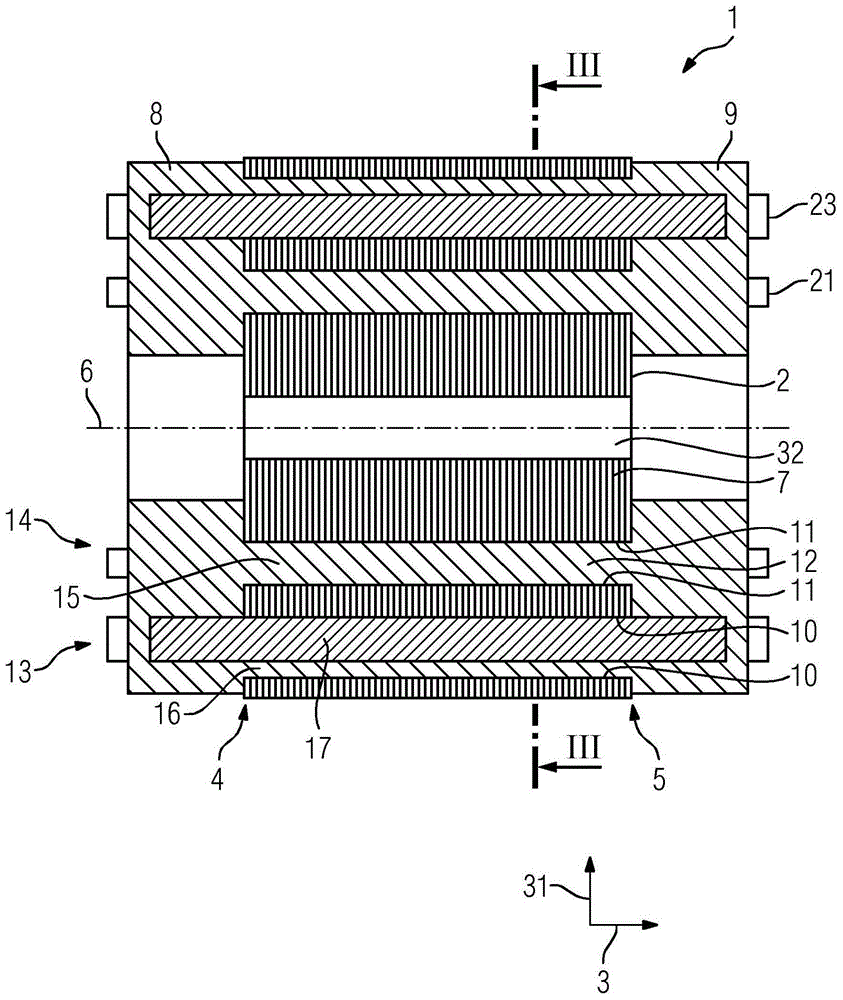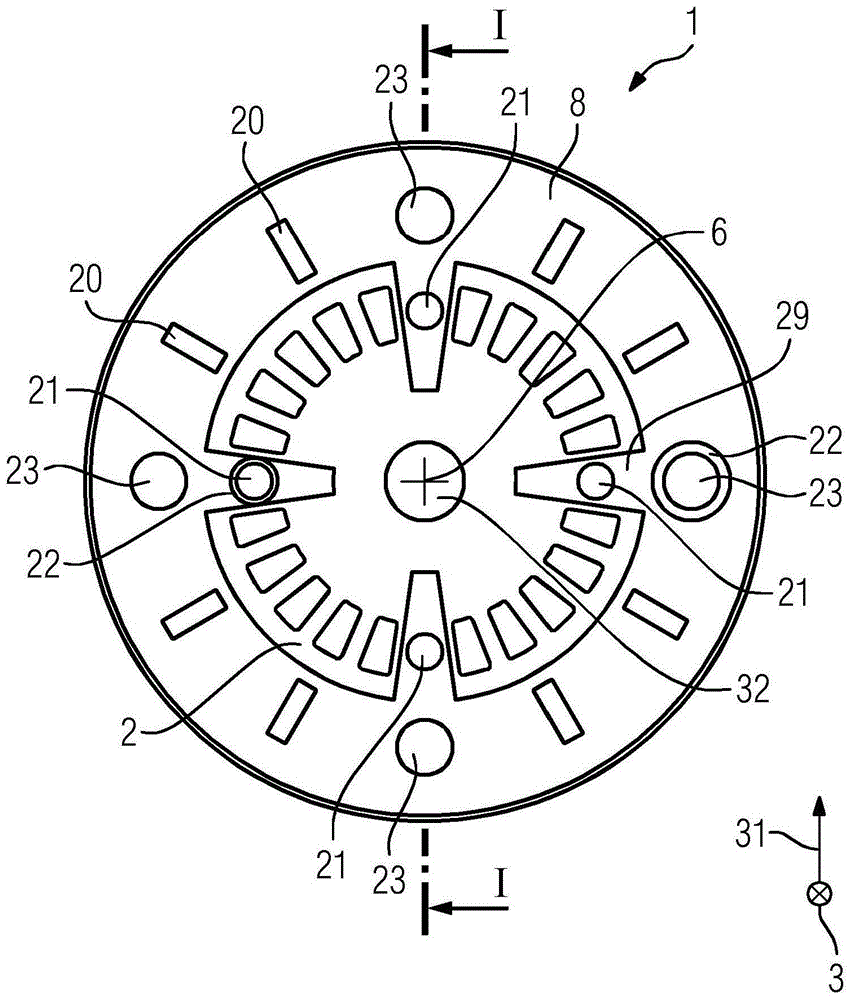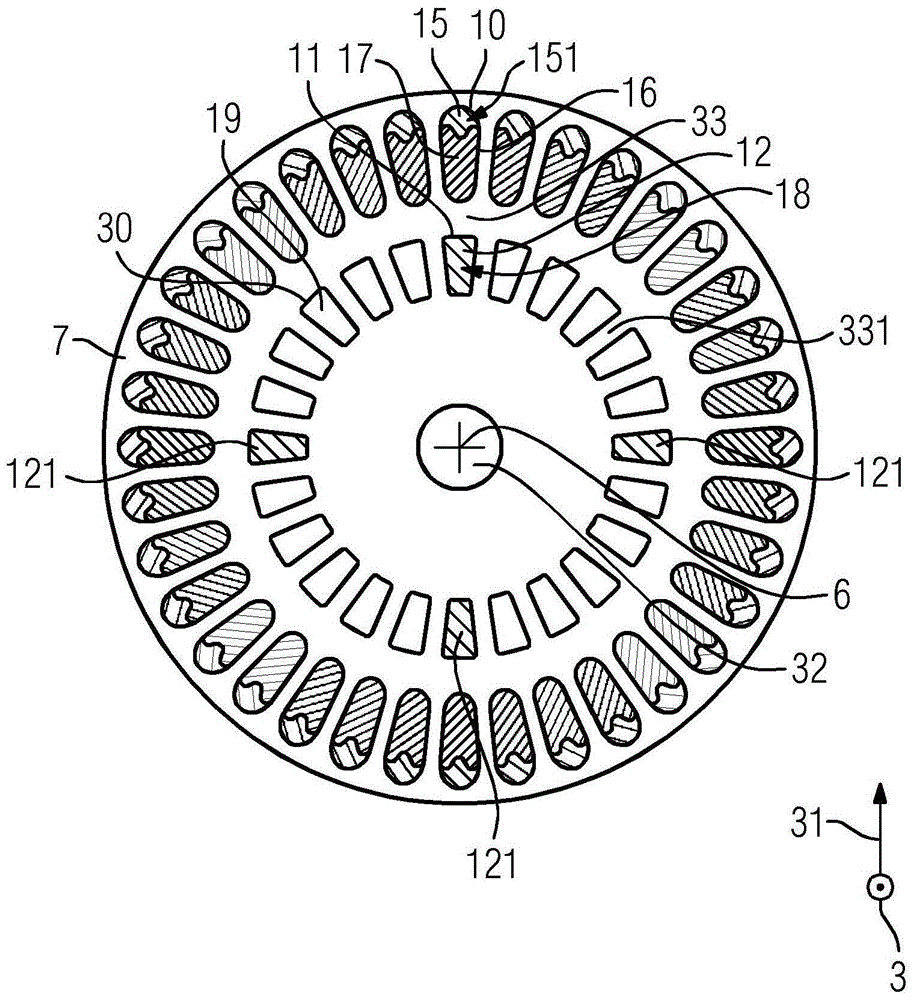Reliable squirrel-cage rotor
A rotor and cage-shaped technology, applied in the field of cage-shaped rotors, can solve problems such as crack formation
- Summary
- Abstract
- Description
- Claims
- Application Information
AI Technical Summary
Problems solved by technology
Method used
Image
Examples
Embodiment Construction
[0072] figure 1 An embodiment of a cage rotor 1 is shown, comprising a rotor plate stack 2 extending in the axial direction 3 from a first axial end 4 along the axis of rotation to a second axial end 5 and having a Lamination 7 layered in axial direction 3 . The cage rotor 1 also has a short-circuit ring 8 which surrounds the axis of rotation 6 and is arranged at the first axial end 4 , and a further short-circuit ring 9 which surrounds the axis of rotation 6 and is arranged at the second axial end Part 9 on. The short-circuit ring 8 and the further short-circuit ring 9 comprise the first material. The first material is suitable for manufacturing a cage rotor by die casting and comprises aluminum in this exemplary embodiment. The laminations 7 of the rotor lamination stack 2 each have a first punching 10 which forms the edge of a groove 16 of the rotor lamination stack which extends from the first axial end 4 to the second axial end 4 . End 5. The laminations 7 also each ...
PUM
 Login to View More
Login to View More Abstract
Description
Claims
Application Information
 Login to View More
Login to View More - R&D
- Intellectual Property
- Life Sciences
- Materials
- Tech Scout
- Unparalleled Data Quality
- Higher Quality Content
- 60% Fewer Hallucinations
Browse by: Latest US Patents, China's latest patents, Technical Efficacy Thesaurus, Application Domain, Technology Topic, Popular Technical Reports.
© 2025 PatSnap. All rights reserved.Legal|Privacy policy|Modern Slavery Act Transparency Statement|Sitemap|About US| Contact US: help@patsnap.com



